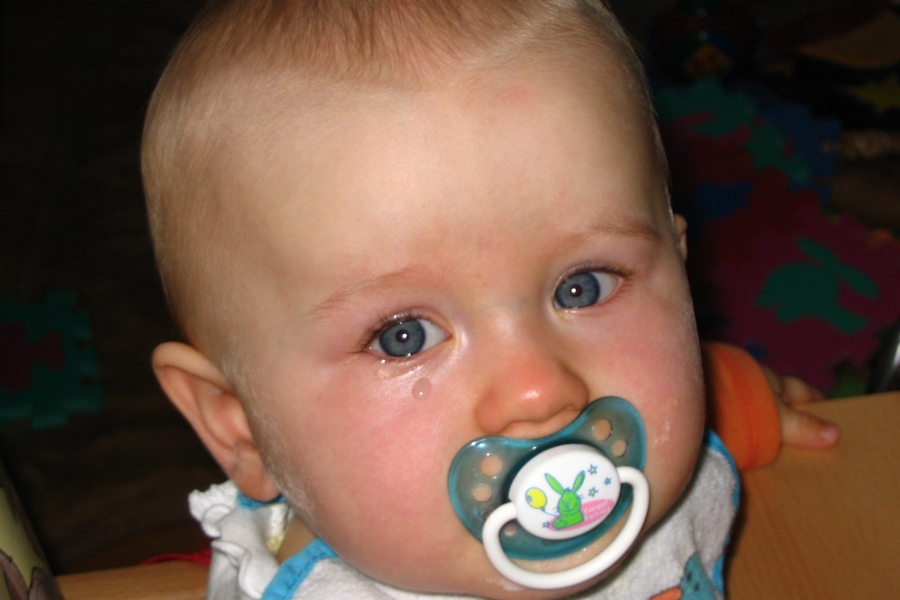
Signs Of Dengue In Babies
23 Jul 2018 | 4 min Read
Dr Raju i Gujarathi
Author | 5 Articles
Dengue is an increasingly common condition transmitted to humans by the Aedes mosquitoes. However, the mosquito is only a carrier of this disease, and the fever is caused by a virus. Dengue fever is characterized by intense pain in the body and high fever. This illness is seen more in tropical areas as the tropical climate typically is an ideal ground for breeding of mosquitoes. Although more common in adults, this illness does not spare infants. This article brings to you all you need to know about the signs of dengue in babies.
Some facts you need to know about dengue:
- Dengue (pronounced den-gee) is not spread through human contact and is not a contagious infection. It is only transmitted through the Aedes mosquito, which carries the dengue virus.
- The Aedes mosquitoes breed in stagnant water. They bite during the daytime, a few hours before sunrise and a few hours after sunset, and can be found in warm and humid areas.
- The incidence of dengue increases during monsoon as collected rainwater can act as a breeding ground for these mosquitoes.
In order to protect your child from dengue, it is imperative that you keep your surroundings clean and dry. Make sure there is no stagnant water in your garden as well. If you use water coolers, clean them regularly.
Signs of dengue in babies
If your baby has been bitten by this mosquito, you may notice the following signs of dengue in babies:
- High fever (101 degrees F or higher)
- Unusual sleepiness
- Extreme loss of appetite
- Dengue rashes in babies
- Fussiness more than usual due to pain behind the eyes, body pain, joint pain, or headaches
- Vomiting
- Bleeding gums
If your baby is showing these symptoms, you must immediately visit a doctor and get the symptoms checked out. In some cases, the symptoms of dengue in babies are not very prominent and, therefore, may get confused for symptoms of viral fever. This could potentially lead to complications due to delayed diagnosis.
In advanced cases, the dengue fever could present itself in a more serious form called the dengue shock syndrome (DSS). If a baby has the dengue shock syndrome (also known as the dengue hemorrhagic fever), it may suffer from regular dengue symptoms for the first few days. However, as the fever begins to go away, the other symptoms aggravate, and there can be serious symptoms as below:
- Bleeding
- Severe abdominal pain
- Vomiting
- Difficulty breathing
- Dehydration
If the symptoms are not attended to immediately with expert care, the results can be very serious and may lead to organ failure.
What to do if you see signs of dengue in babies?
If your baby is experiencing pain along with high fever and body rashes, you must consult a doctor immediately. Make sure that you do not administer any nonsteroidal anti-inflammatory medications like aspirin to your baby as these could aggravate the symptoms and affect the blood platelet level of the baby.
You must also make sure that you give the baby ample breast milk or plenty of fluids to prevent dehydration.
Cover the baby’s forehead with a wet cloth to reduce fever and make sure that your baby gets plenty of rest.
How is dengue diagnosed in babies?
The doctor should be able to identify the illness by its symptoms, but to confirm the disease and estimate its severity, a blood test will be done. The healthcare provider will enquire about the symptoms to gather as much information as possible.
How is dengue treated in babies?
There is no definite medicine to cure dengue and the doctor may recommend plenty of rest and treating the baby’s symptoms. E.g., if the baby has loose motions, the doctor may give IV fluids to supplement electrolytes and salts to prevent dehydration. In advanced cases, hospitalization may be required.
In case of a severe illness such as dengue, prevention is the best cure. As stated before, you must be cautious of your surroundings and keep them clean and free of mosquitoes at all times. To protect your baby, you can use mosquito nets or mosquito repellent creams for extra protection.
Also read: Signs Of Malnutrition In Babies
A


Related Topics for you
Suggestions offered by doctors on BabyChakra are of advisory nature i.e., for educational and informational purposes only. Content posted on, created for, or compiled by BabyChakra is not intended or designed to replace your doctor's independent judgment about any symptom, condition, or the appropriateness or risks of a procedure or treatment for a given person.
